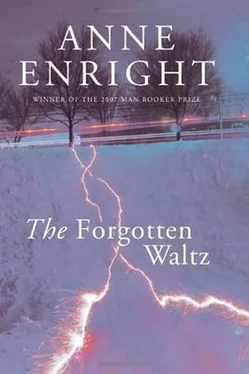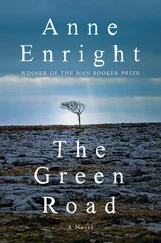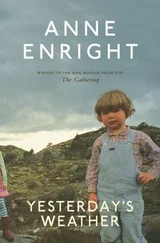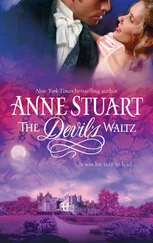Then he drank it anyway.
It was as though he was made of glass, his insides had gone so slack and loud. You could hear the liquid travelling into his stomach, spilling down his oesophagus, gurgling into his belly. There was a wrung-out kind of creak as it rose back up and the expression on his face as he willed it down again was comically fierce. He closed his eyes and rested. Then he opened them again and, for two minutes, maybe five, he was completely himself. He was the man we knew; clever, busy, large.
‘If you stopped biting your lips, my dear, then you wouldn’t have such a raggedy mouth.’
My father used to complain about my mouth, the way it gave me an insolent look. ‘What’s the puss about?’ he said, or once, memorably, to one of his cronies, ‘She didn’t get that, sucking oranges through a tennis racket.’
But he said plenty of nice things, too. My father never treated us as children. If you hurt him, he would hurt you right back. If you made him laugh, he would bring the house down with delight. I don’t remember people ‘doing’ children, the way Fiona ‘does’ hers in that tidy your toys and we’ll have a nice hug sort of way. There was drama all day when my father was around, and it was all as big as it needed to be. He fought with my mother, he loved my mother. He went missing. He came home and was shaggy and large with us. I loved that about him, the wonderful air of danger and surprise.
I just hated, as I got older, the look of him when he had drink taken: the way he swivelled his face around to find you, and the chosen, careful nonsense that came out of his mouth when he did. I hated the way he sat there, benignly absent, or horribly possessed by some slow creature, who rolled, across the distance between you, whatever sentence he could shape in his head; lovely, mean, grandiose, small. Or fond: that was the worst, I think. Fond.
‘Look at you. Aren’t you lovely?’
By the time we were teenagers, he wasn’t around all that much. He always kept Sunday at home, but even on a Sunday he was in bed till eleven, and went out around five so, let’s face it, six hours a week, a bit of roast lamb with mint sauce on the side – you could take it either way. You could be mad about him, as Fiona was, you could be pretty and perfect, you could have plaits that were sweet, and hairbands that stayed put, you could work on your Irish dancing and your songs from Oklahoma! or you could slob about and glower, like me. I was clever. I mean, Fiona was clever in a let’s-all-get-a-B-plus sort of way, but I was clever because if I was clever then I would not have to care.
Now she has a perfect life, my sister has taken to inventing a perfect past to match it. She doesn’t think our father was a drunk – which makes two of them, I suppose – and she would certainly deny the memory I have of us hanging on to each other laughing, coming back up the Harold’s Cross Road.
‘Who are you? Why are you kissing me?’ he had said to her. ‘And why, my pet, have you stopped kissing me, when we were getting so nicely acquainted?’
Demented is different to drunk. I think people get demented the same way they get annoying. The thing you don’t like about them just gets worse, until one day you find that’s all there is left of them – the fuss and the show of it – the actual person has snuck out the back and gone home.
I can’t remember how long his illness took. Too long. Not long enough. When the school holidays came, we were sent across to our Granny O’Dea’s house in Sutton where the sea lapped the garden steps or exposed a rocky shore and sometime, between one tide and the next, he died.
At the funeral, then, we got him back: this wonderful person, our father. The church was packed, the house overflowed with men in suits, who sat and leaned their hands on long thighs, to tell tales of his wit, his acumen, his canny charm. He was the last of the great romantics. My mother said that. Someone had sent a case of Moët, and she asked for it to be served. She stood up and raised her glass. She said, ‘Here’s to Miles, my handsome husband. He was the last of the great romantics.’
Why not?
Then they left and we were alone.
We had a way, all that autumn, of hanging out and moping – that’s the only way to describe it: the three of us talking about clothes and hair and weight, pecking at things, idling them through our fingers, going on the same diets, swapping clothes; stealing from each other too.
‘Did you take my halterneck top?’
‘What top?’
And nothing in these conversations was ever satisfactory, or wanted to be, there was only one direction, and that was downhill.
When Fiona hit seven stone my mother brought her to a shrink, who said my sister had stopped eating in order to stop the clock: if she stayed a child, then her father would not have to die. Which was too sad to be useful really. Joan went back to wearing her dressing gown all day and Fiona went back to her cottage cheese and there was no food in the fridge anyway – at least not after I had been through it – and then, when the spring came, we discovered boys.
Or I discovered boys. Fiona, if you ask me, only pretended to.
People might think it hard, growing up with a pretty sister but Fiona was lovely the way girls are lovely for their Daddy, and after he died, she did not know what to do with it, really. Her beauty was a sort of puzzle to her. And she always ended up with the wrong sort of guy: the kind who want a girlfriend to match their car; prestige types, bottom feeders, liars. At least that’s what I think; that boring old Shay was probably the best of them. That she ran into motherhood in the hopes that she would be safe there, and they would all leave her alone.
But in the spring of 1989, six months after Miles died, my sister was pretty and I was lots of fun. Joan screwed a fag into her white plastic filter, and got out the powder and blush. We were the Moynihans of Terenure. It was our duty to have a queue of young men knocking at the door.
Across the road – which is now a busy road – is the bus stop where I used to say goodnight to those early boyfriends: sitting on the wall for hours, or strolling around the corner on some excuse (‘Let’s see what’s around the corner!’), for a bout of kissing. Rory or Davey or Colin or Fergus: it was supposed to be about their eyes or their fringe or their taste in music, but despite the way I persuaded myself, with doodles in the backs of copy books and shrieks among friends, that I loved them, each in turn, it was all just about this: the smell of petrol from the buses, and the evenings getting longer, and kissing outdoors until the tips of our noses went cold. In those days, just being in the open air gave me goosebumps. Walking down the street alone, thinking my beautiful thoughts, picking the yellow blooms off the neighbour’s forsythia and shredding them on to the path: kissing was the answer to all this too.
It took me a long time to move on to anything more serious, sexually: Fiona too, I think. The Moynihan girls were old-fashioned. It was something to do with our mother being a widow; an instinct we had about power.
It was Fiona I missed, that first Christmas back in Terenure. Seán was in Enniskerry doing Santa Claus for a child who no longer believed in Santa Claus. Aileen was serving a light fino before lunch. I was alone. And the person I missed was my sister, the woman who was glad – as she said, glad – our mother was dead, so she wouldn’t have to witness the way I was carrying on.
She was wrong about that, by the way. My mother would have understood. My mother with her handsome, infuriating husband; she would have kissed the top of my sad head.
I slip between the curtains in the front room and press my forehead to the glass, with the nets falling down my back, the orange light of the streetlights outside turning the shadows violet, and I remember, or think I remember, some childhood snow, Miles bringing us to the big hill in Bushy Park, half the neighbourhood going down it on tea trays and body boards and plastic bags, Hold on tight! The outraged ducks slipping across the obstinate pond, our screams bouncing off a low, blank sky.
Читать дальше












